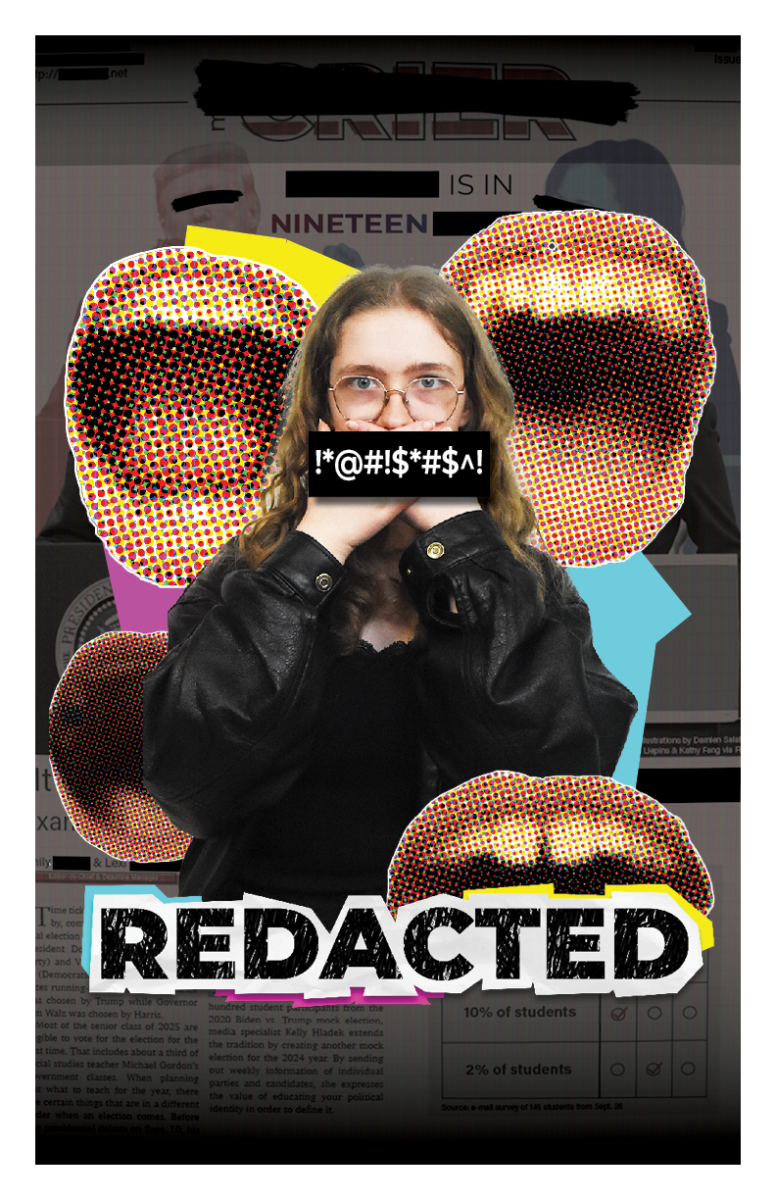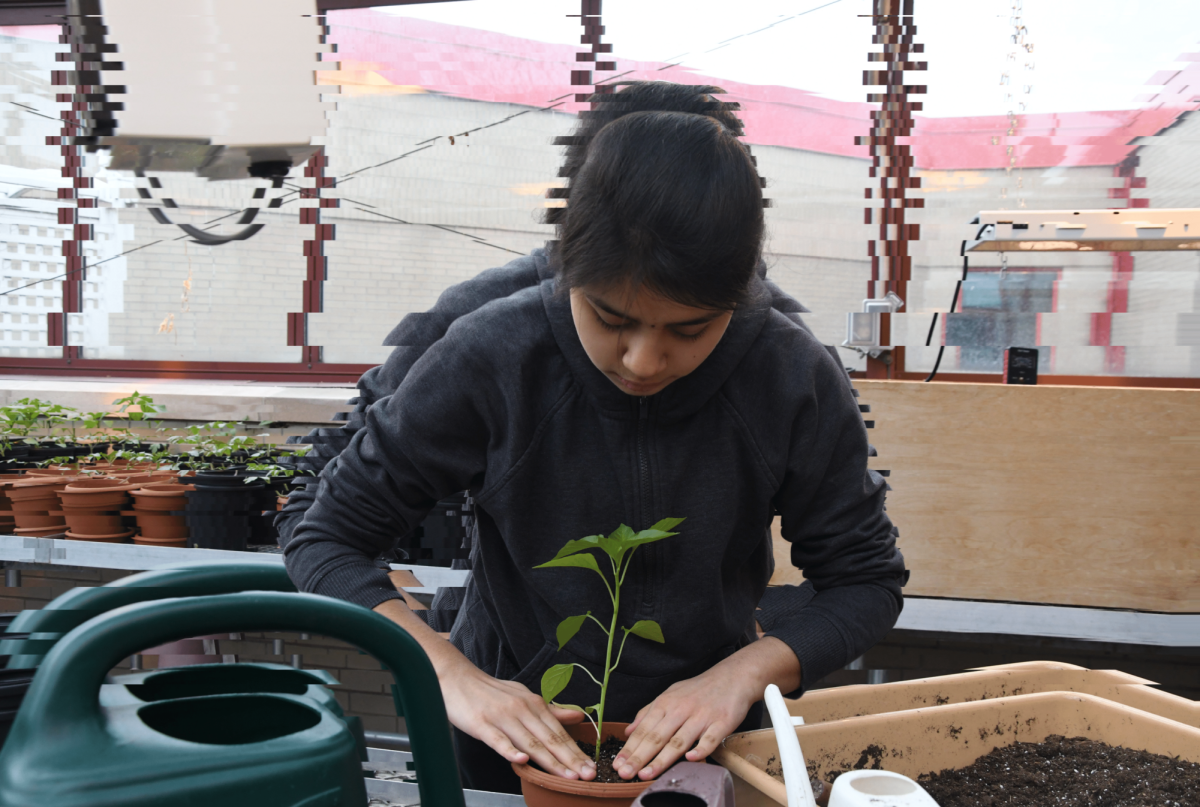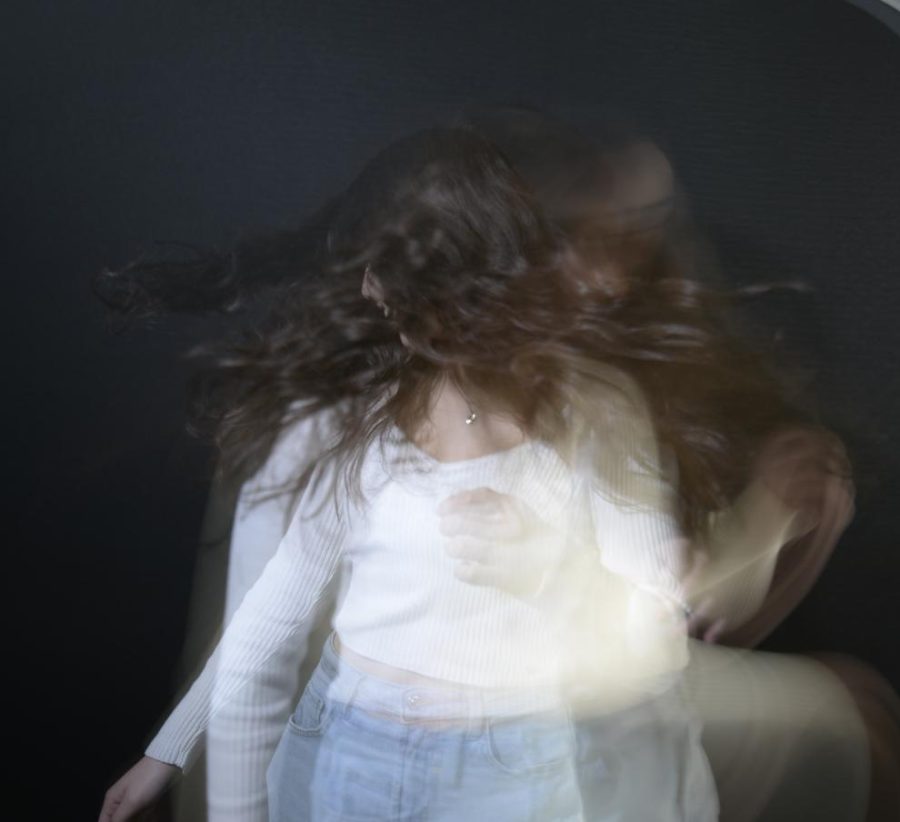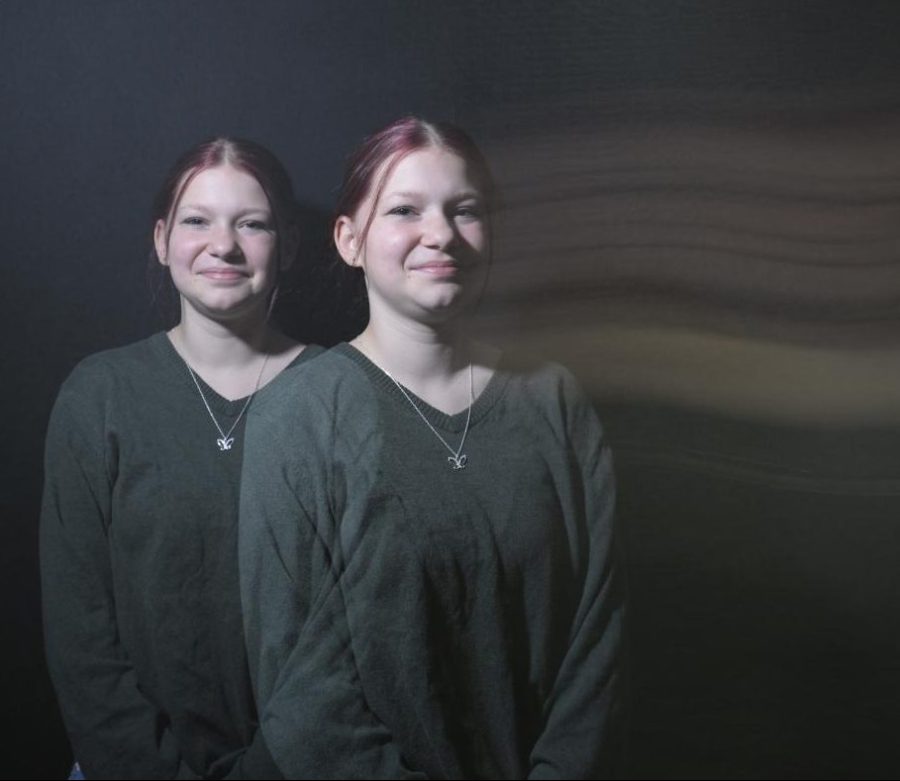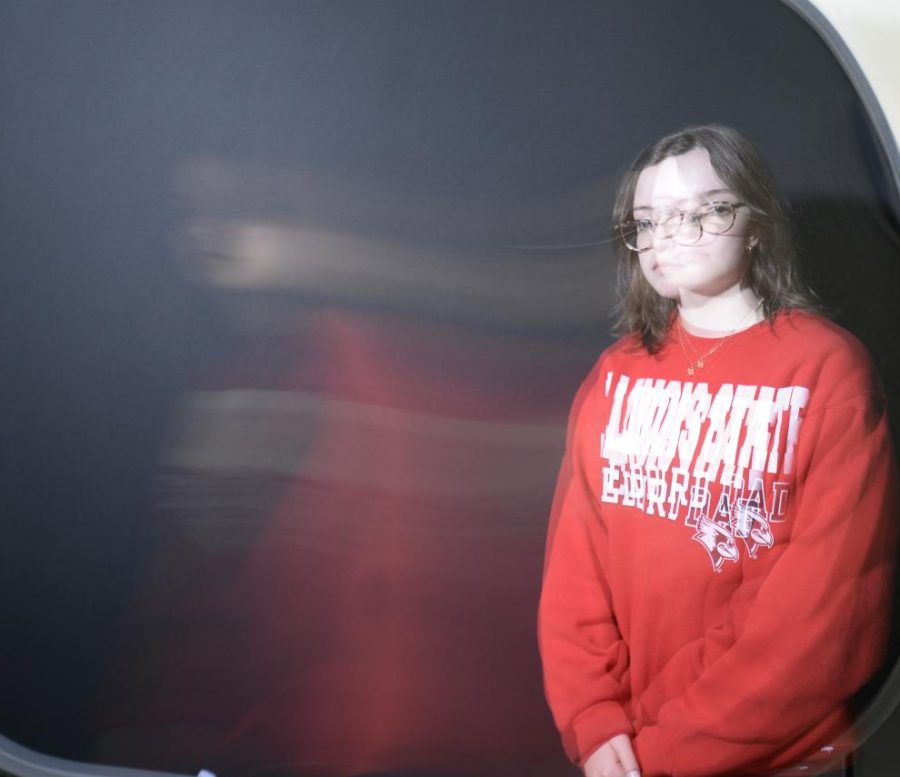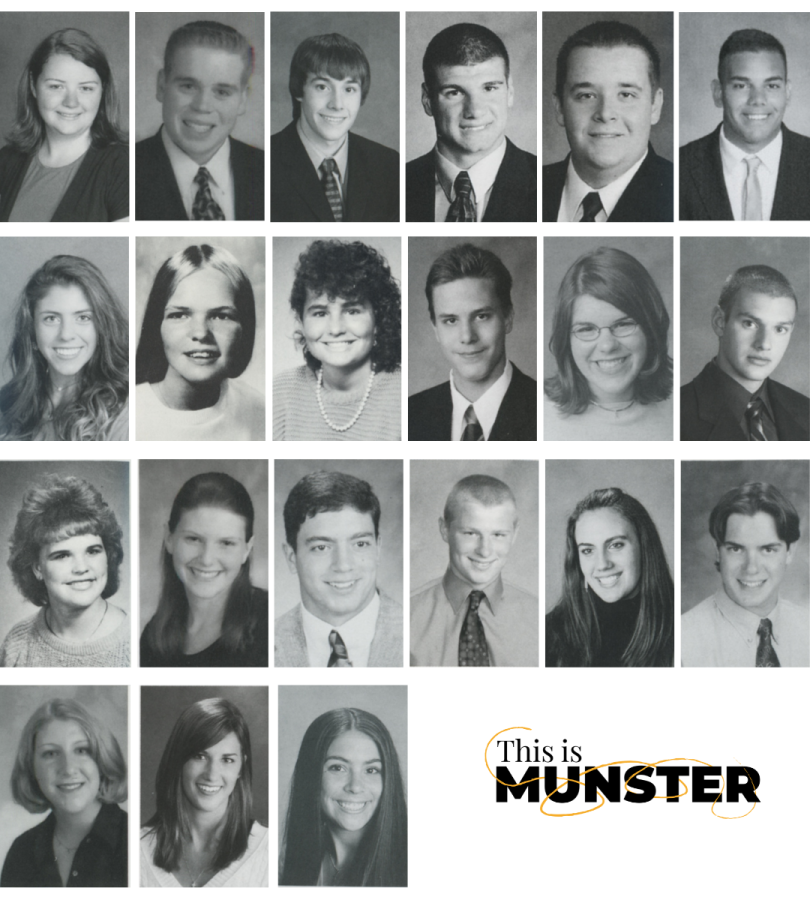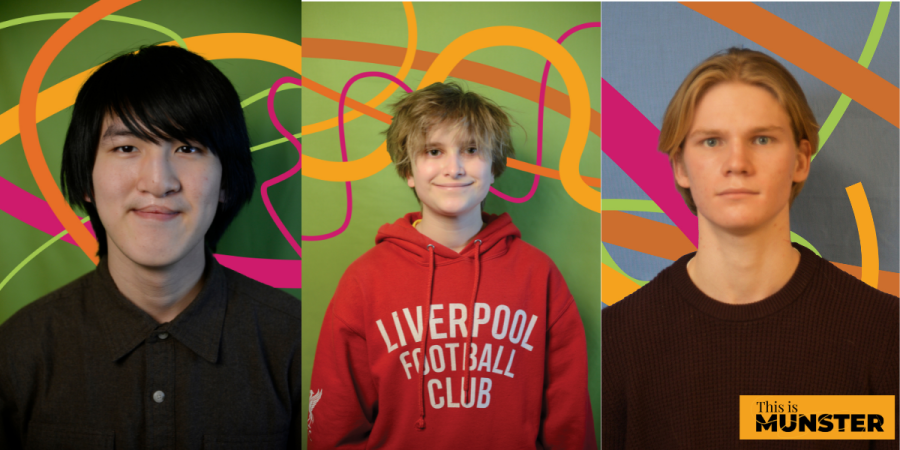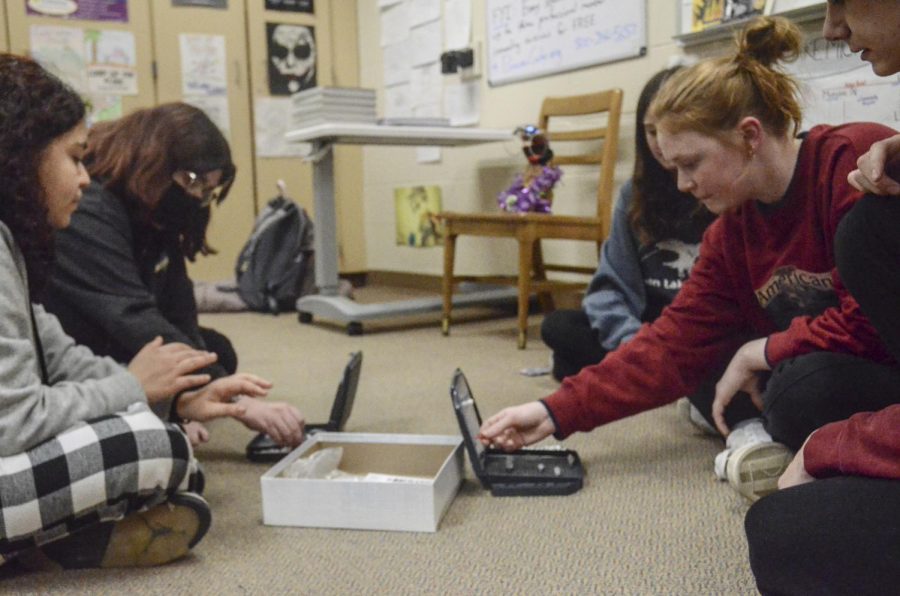Breathe in, breathe out: Different ways to spark a conversation about anxiety
WENESDAY UNWIND Finding ways to destress after school every other Wednesday members of Munster Mental Health club sophomores Mia Cartagena, Miranda Fisher, and Lucy MacDonland junior, play a game of battleship find relief.
March 23, 2022
Tuning it out
Approximately 7% of children aged 3 to 17 suffer from anxiety each year mentioned by Childrens Mental Health. A way for students to distract themselves is with music.
“I think music is a great way to boil it down, like escapism and empathy are the best ways that music can help,” Mr. Ben Boruff, Mental Health Club sponsor, said.
Music can have a profound effect on students’ emotions and can reduce anxiety up to 65%, according to an Inc. article about anxiety by Melanie Curtin. Music used to calm down could be meditation music for some students or hard rock for others—everyone is different and music tastes vary.
“I do listen to certain music when I’m sad or want to be in a happy mood and it’s mostly feel-good music or songs I can sing to,” Makena Mendoza, junior, said.
Music has made a big impact on our generation, so much so that certain types of music will change one’s mood. Listening to sad music make one upset and listening to up-beat sounds can put one in a better mood.
“I do listen to certain music when I’m sad. It’s probably not good, but I feel like I just add onto the sadness. Sometimes I’ll listen to sad music when I’m sad, sometimes it helps. Sometimes you need a good cry,” Lauralyn Courtney, junior, said. “Most of the time, I just listen to neutral or more peppy music, but I also like listening to what I call ‘summer songs.’ It doesn’t even have to be summer, but it reminds me of summer, which is a really happy time.”
Behind the scenes
Making therapy a social norm amongst young teens in high school and has been a current discussion nation wide. Sometimes therapists will recommend different ways to combat anxiety with breathing exercises, counting fingers or hobbies. Therapists, or anyone the student talks to, might recommend staying off of social media if that is the main source of stress.
Social media distorts the way people look at mental health and may make life look easier than it really is.
“The internet tends to be more of a negative place than a positive place and spending too long in those spaces can have a negative impact and even in my view, some of the positivity that exists online is forced fake positivity,” Mr. Boruff said.
Students can feel overwhelmed by social media and being told that telling others your feelings is a burden.
“Social media is more divisive, there are people who say ‘Oh seek help’ and there are other people who are like ‘Why are you pushing the burden on someone else’—some people encourage bad mental health which I don’t understand at all. What do they gain other than becoming the next hot topic for the next 15 seconds,” Isaiah Kim, senior, said.
Breaking point
After days on end of work, tests and waking up early for school, some students end up taking a day to debrief and recollect themselves.
Adding ways students de-stress and take care of their mental health, some students take mental health days. These days are excused by the students’ parents but still count toward the seven absences in Indiana. MHS does not provide mental health days to any students and will be counted against the students allowed absences for the school year.
“My belief is that we should have mental health days, just for the sake of the students here. I know I’ve really needed a few at some points in my life,” Isaiah said. “A mental health day would really help unwind the brain because of what they’re going through with school, which could be bad, If it’s a personal thing you also have to combine school with that, which would just make it worse.”
In Illinois, students are allowed to use five days excused per school year as mental health days without a doctor’s note that will not count towards their absences. These days are supposed to be for when students do not mentally feel well and cannot mentally go to school.
“I think our school should have mental health days and they’re necessary because it refreshes your brain and mental health should come first before anything,” Makena said.
Coping with anxiety
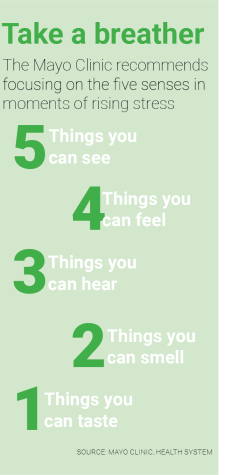
There are other ways to de-stress including meditating, reading a book, painting or talking to someone about anxiety or stress. Students could talk to therapists, students and teachers depending how they feel.
“In-person therapy makes me feel a lot more comfortable and I feel like I would be able to talk a lot more freely,” Shreya Patel, junior, said.
Students could learn relaxation techniques. Concentrating on breathing will provoke panic and hyperventilation. Abdominal breathing is another technique that helps control the nervous system and encourages the body to start relaxing. Students can resort to watching comfort movies or shows. This could ease the brain by watching something that they love and warms the heart.
“Some ways to de-stress would be to change your surroundings, maybe go take a walk and use that to clear your mind,” Shreya said. “You can combat anxiety by talking to others about what may be making you feel anxious so you could feel lighter.”










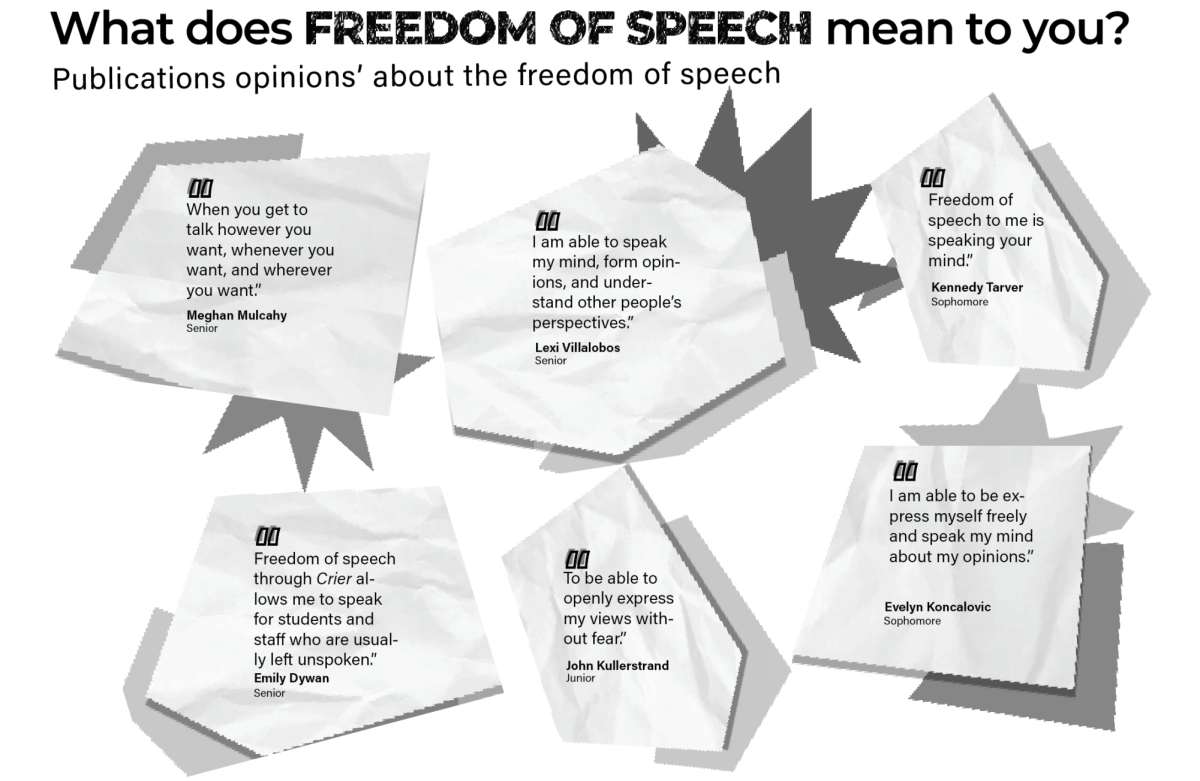







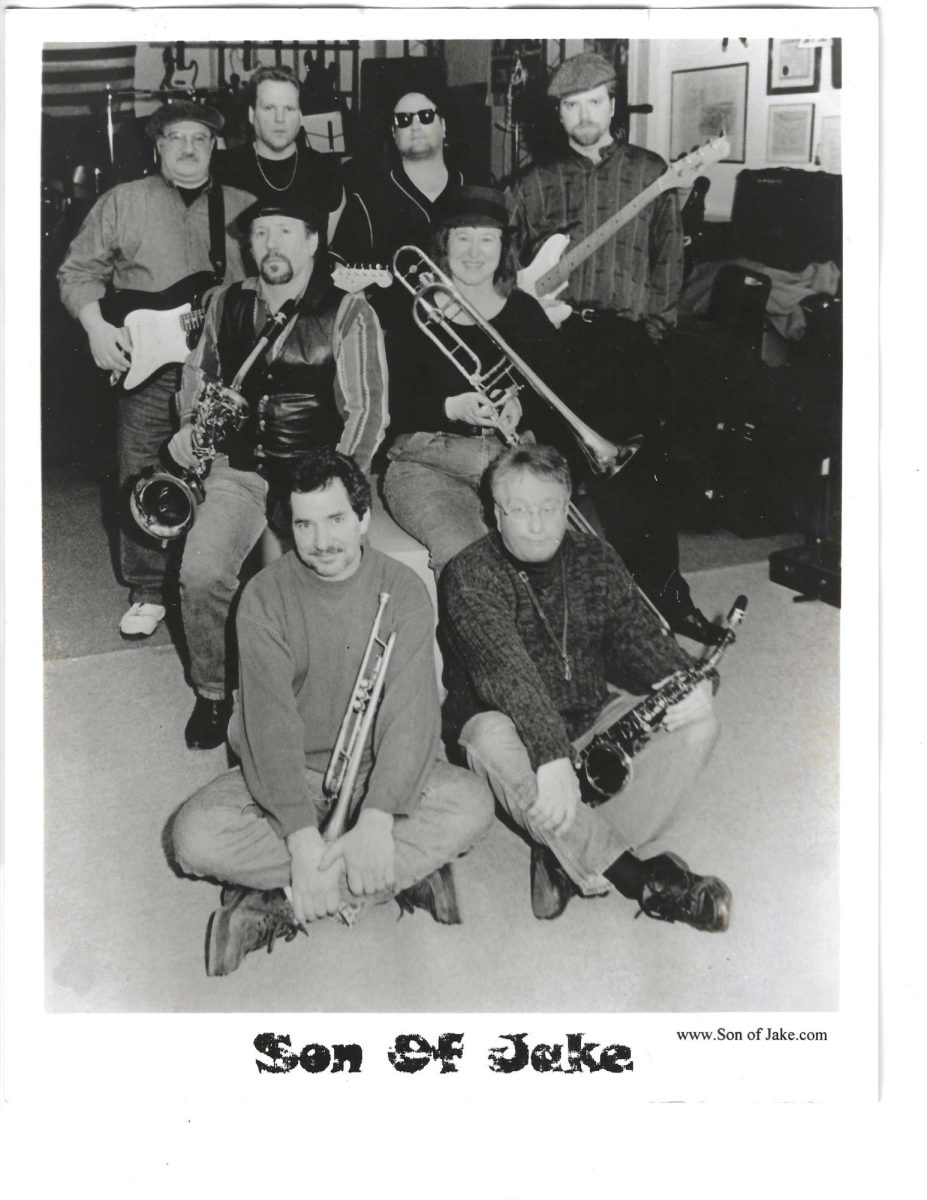


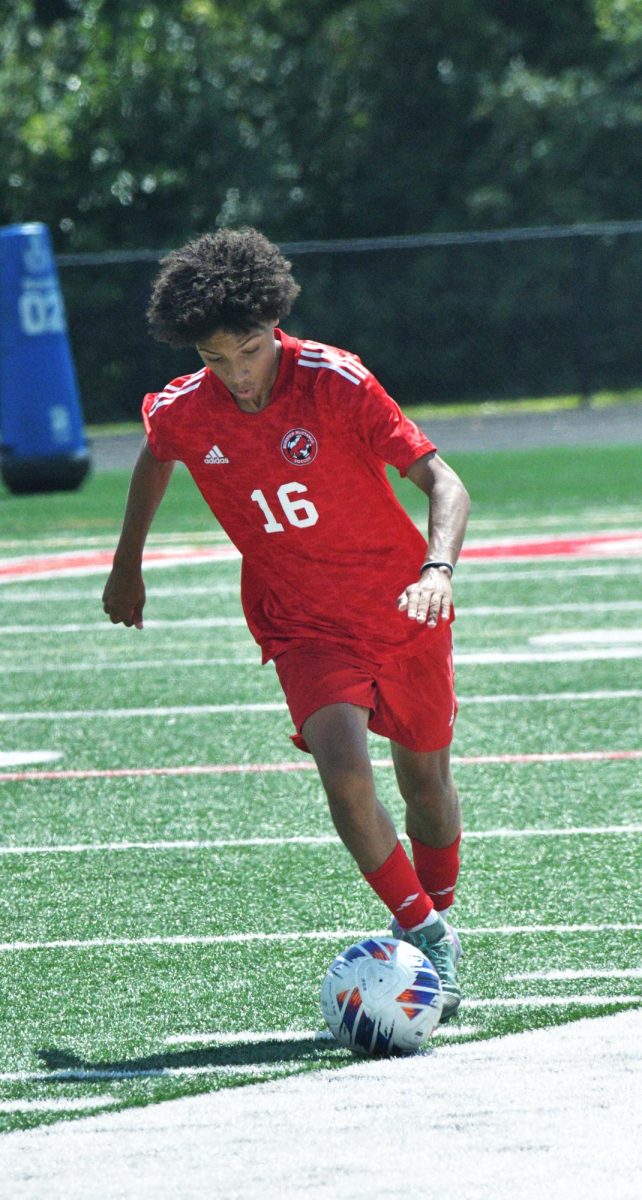
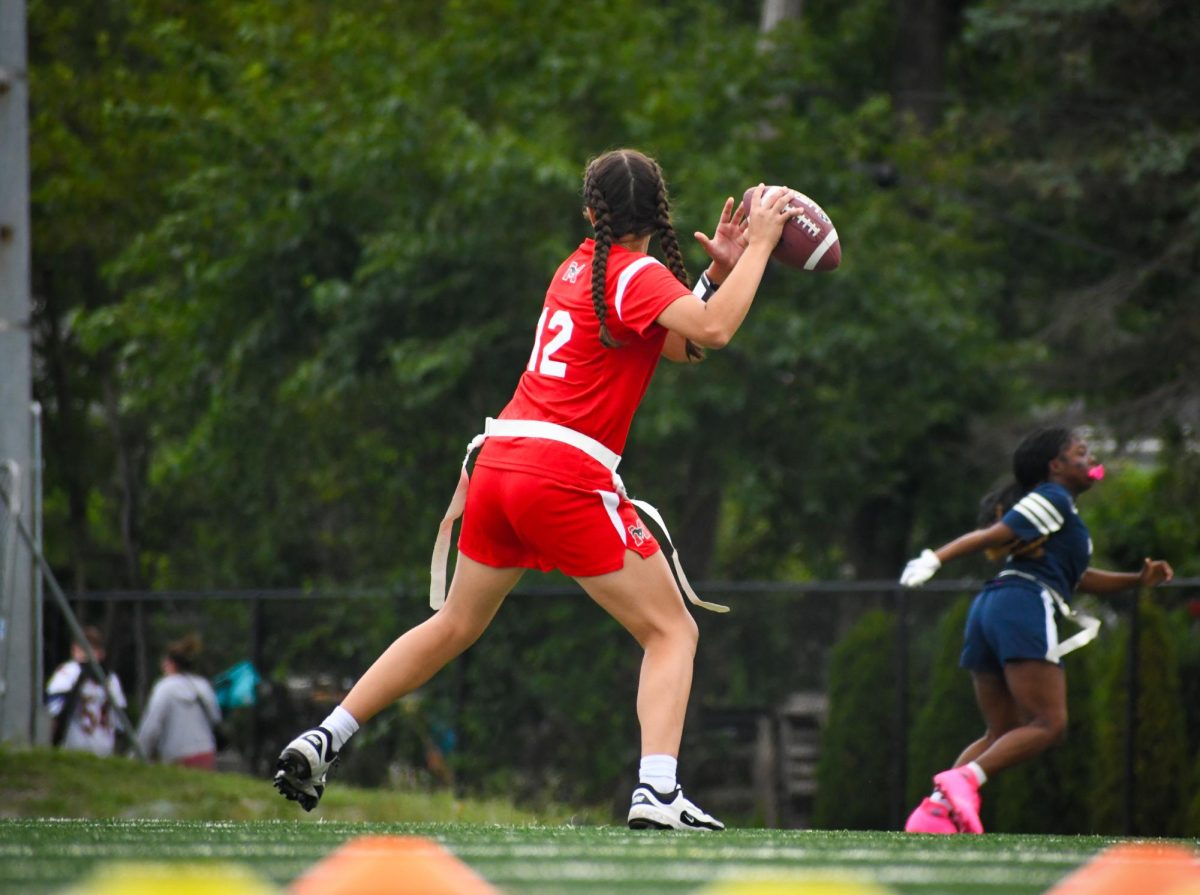



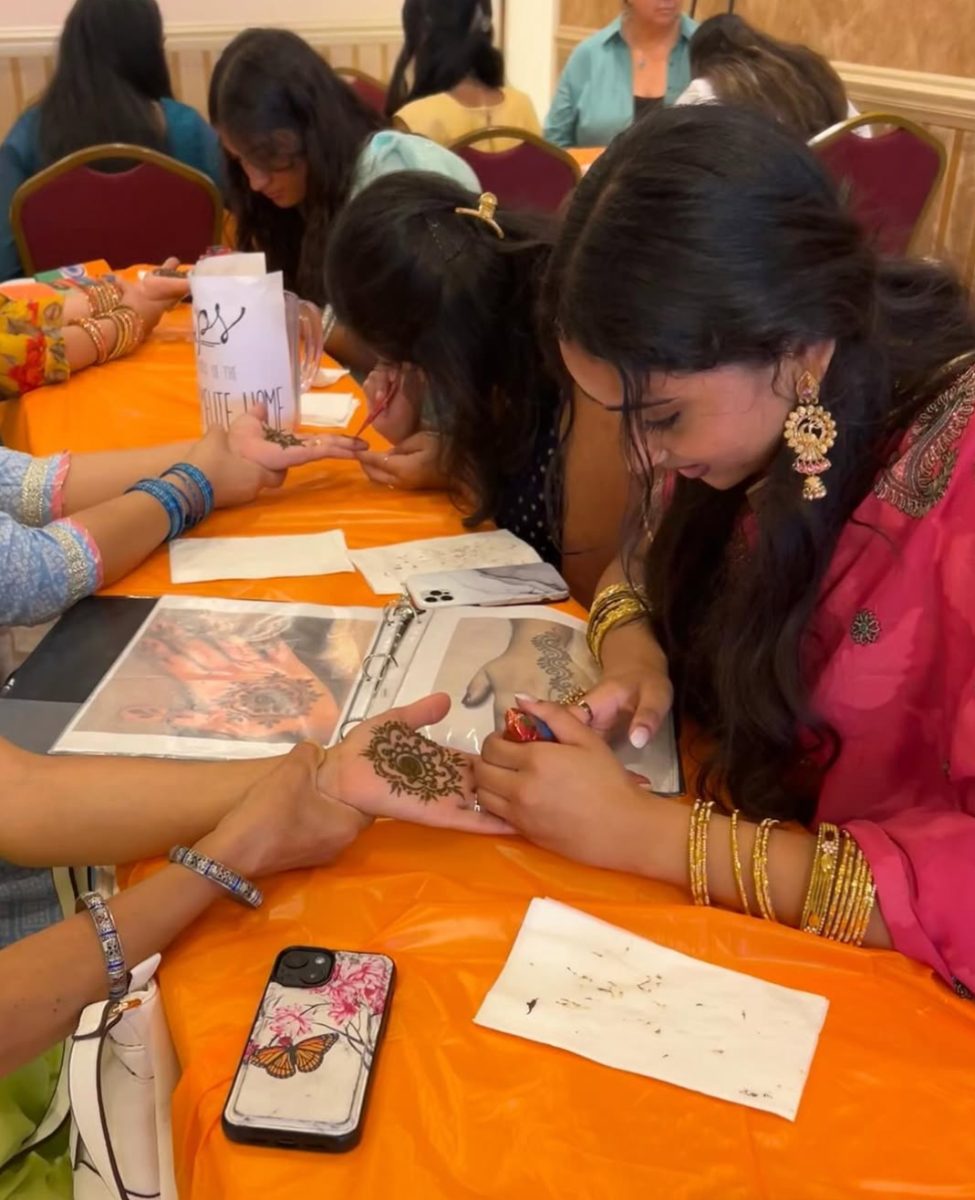

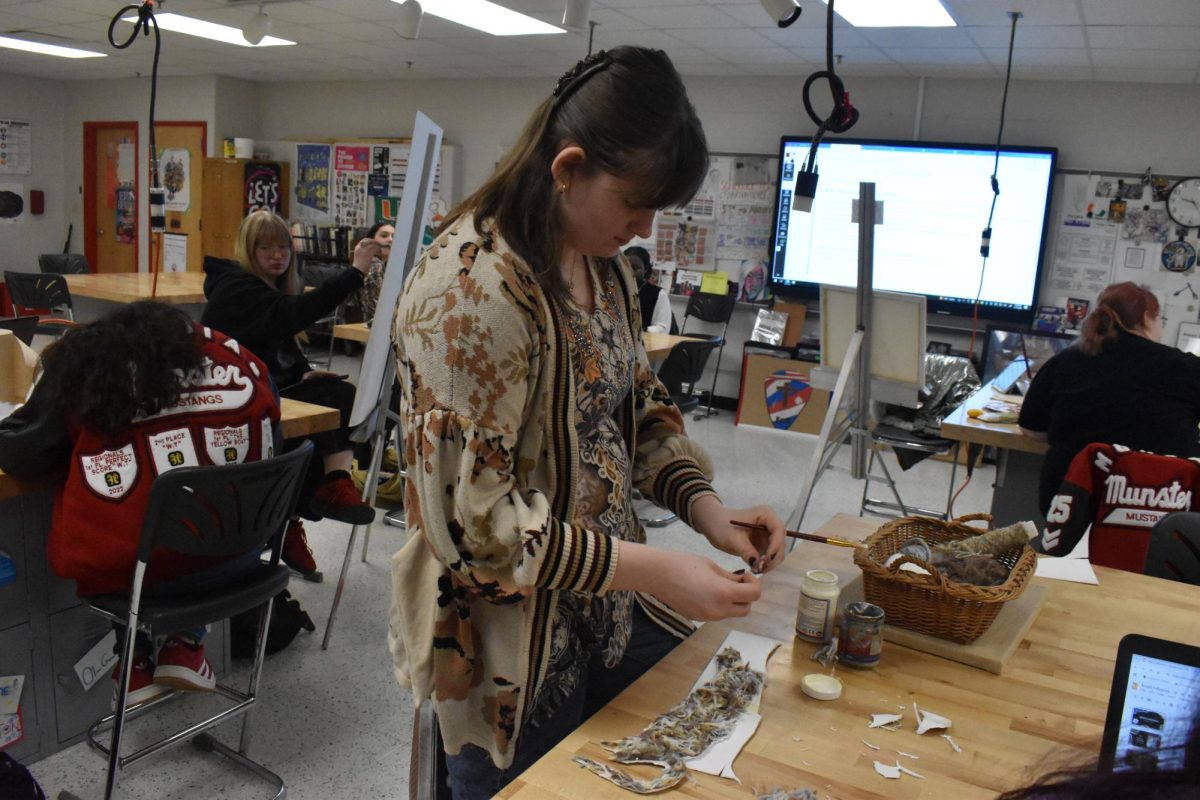

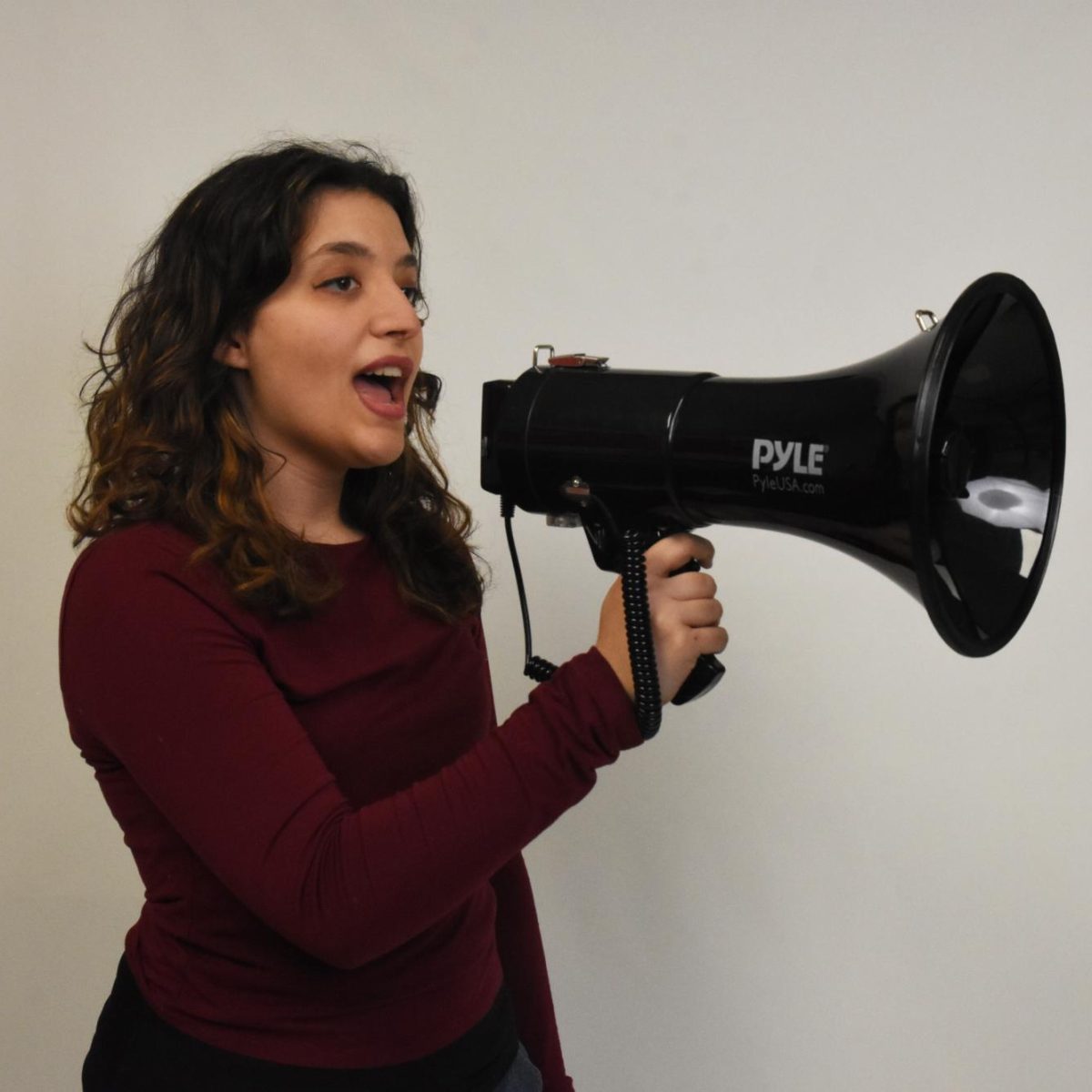
![SNAP HAPPY Recording on a GoPro for social media, senior Sam Mellon has recently started a weekly sports podcast. “[Senior] Brendan Feeney and I have been talking about doing a sports podcast forever. We love talking about sports and we just grabbed [senior] Will Hanas and went along with it,” Mellon said.](https://mhsnews.net/wp-content/uploads/2025/04/sam-892x1200.png)
